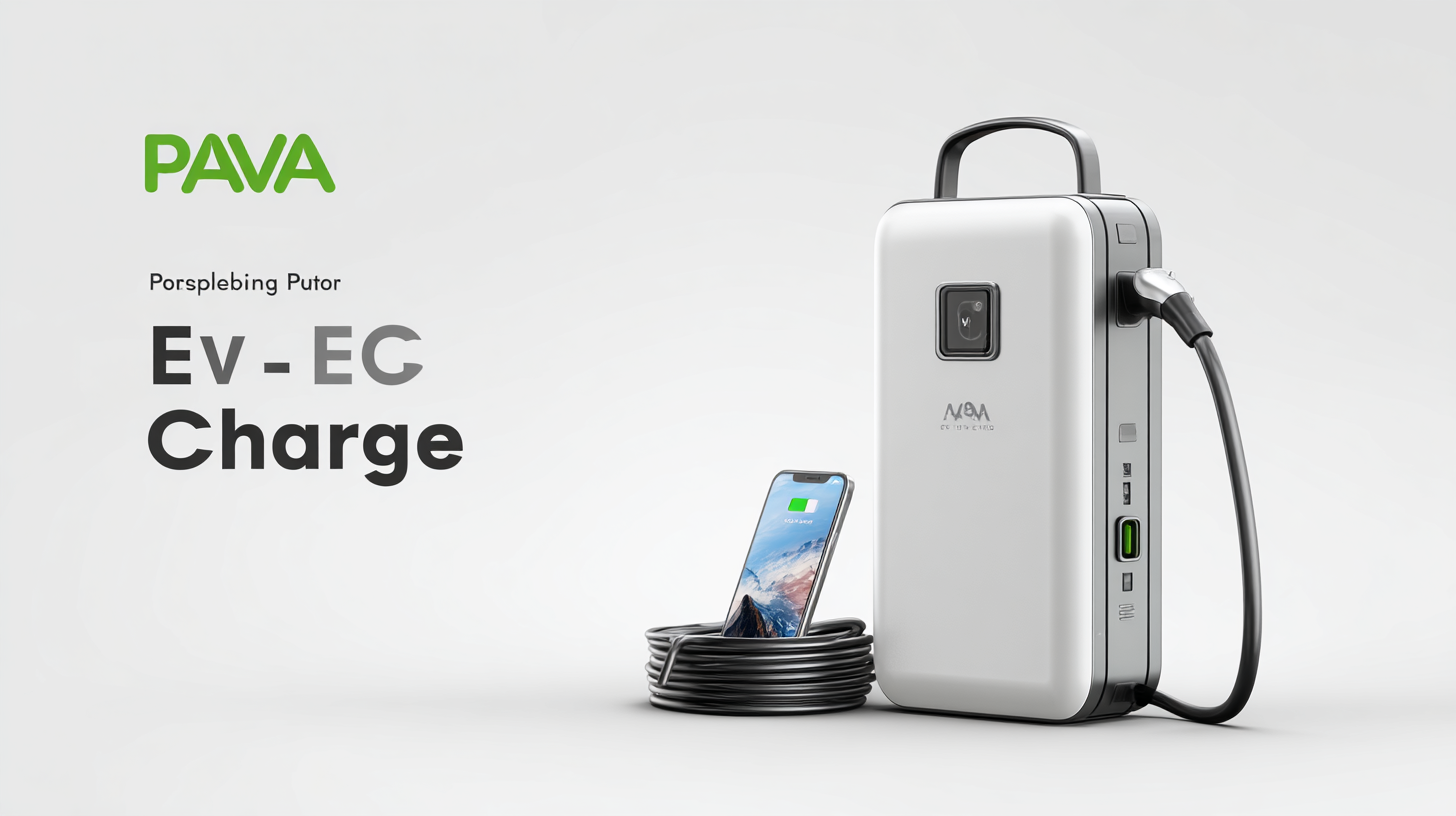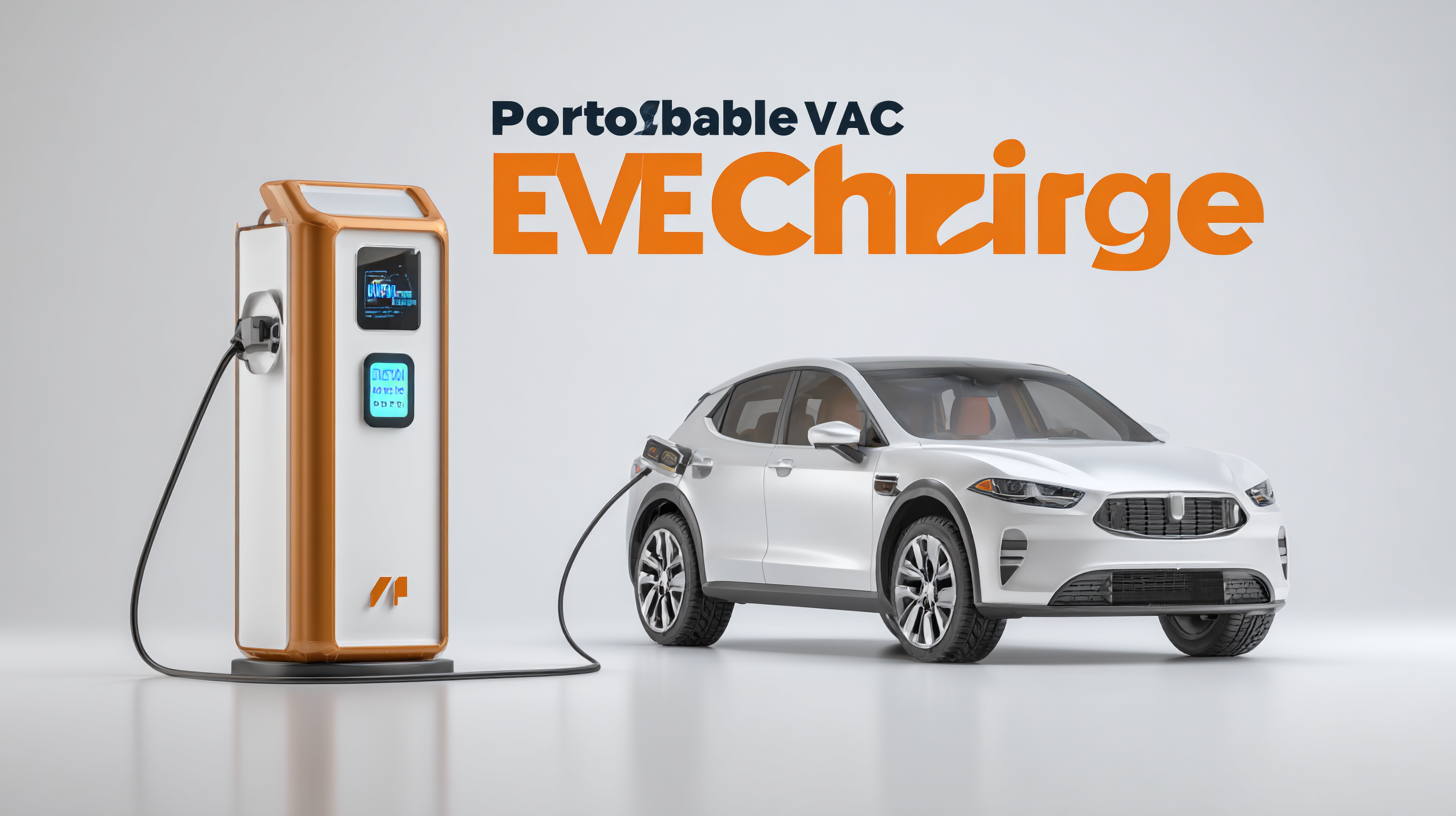
Unlocking Global Markets for Best Portable EV Charge with Essential Import Export Certifications
As the demand for electric vehicles (EVs) continues to surge globally, the need for efficient and accessible charging solutions is more critical than ever. Portable EV charge systems have emerged as a game-changer, offering flexibility and convenience for users on the go. However, to successfully tap into international markets, businesses must navigate a complex landscape of import-export certifications. These essential certifications not only ensure compliance with local regulations but also enhance product credibility and consumer trust. In this blog, we will explore the benefits of acquiring these certifications for your portable EV charge products, how they can unlock global market opportunities, and the key steps to facilitate a smooth entry into diverse regions. Whether you are a manufacturer or a distributor, understanding the importance of these approvals is vital for thriving in the competitive landscape of portable EV charging solutions.

Identifying Key Qualities in Portable EV Charger Suppliers
When seeking out portable EV charger suppliers, identifying key qualities is crucial for unlocking global market potential. First, reliability is paramount; suppliers should not only offer high-quality products but also consistently meet delivery timelines. A supplier's ability to maintain transparency in their supply chain and provide up-to-date certifications can assure buyers of the product's quality and compliance with international standards. Additionally, assessing a supplier's customer service reputation can serve as a benchmark for their commitment to ongoing support and responsiveness to client needs.
Another essential quality is innovation. In a fast-evolving industry like electric vehicle charging, suppliers must stay ahead by integrating the latest technologies into their products. This includes efficient charging capabilities, compatibility with various EV models, and user-friendly features that simplify the charging process for consumers. Sustainability practices are also increasingly becoming a deciding factor, as both consumers and businesses prioritize environmentally friendly solutions. By focusing on these key qualities—reliability, innovation, and sustainability—buyers can forge partnerships with suppliers who not only meet current demands but are also prepared for future advancements in the EV market.
Top Qualities in Portable EV Charger Suppliers
This chart displays the key qualities considered by consumers when evaluating portable EV charger suppliers, showing the significance of various factors such as cost, reliability, charging speed, and certifications.
Evaluating Supplier Certifications and Compliance for Global Trade
In today's rapidly evolving electric vehicle (EV) market, optimizing supplier certifications and compliance is crucial for unlocking global trade opportunities for portable EV chargers. According to a recent report by the International Energy Agency (IEA), the number of electric vehicles on the road could reach 230 million by 2030, significantly boosting the demand for charging infrastructure. As suppliers seek to expand their markets, understanding essential import-export certifications becomes a vital step in ensuring product acceptance in various countries.
When evaluating potential suppliers, it’s essential to verify their compliance with international standards such as ISO 9001 for quality management and IEC 61851 for EV charging systems. These certifications not only enhance product credibility but also help mitigate risks associated with regulatory non-compliance. A 2022 survey by McKinsey highlights that 75% of companies prioritize suppliers with strong certification frameworks, indicating that robust compliance mechanisms can lead to better customer confidence and increased sales.
Tips: Always demand documentation for certifications from your suppliers and conduct regular audits to ensure ongoing compliance. Additionally, stay updated on changes in international trade regulations to avoid any disruptions in your supply chain, which can significantly impact your business operation in a competitive market.
Strategies for Conducting Thorough Supplier Background Checks
When conducting supplier background checks in the context of portable EV chargers, businesses must prioritize transparency and ethical compliance. A recent study indicated that unethical practices, such as withholding goods and surprise fees, are predominant challenges in supply chains, especially when dealing with manufacturers in regions with less stringent regulations. Ensuring that suppliers adhere to ethical standards not only fosters trust but also mitigates risks associated with late deliveries and unresolved disputes.

One effective strategy is to implement comprehensive third-party risk management (TPRM) protocols, which leverage advanced technologies like blockchain. This approach enhances transparency and security in vendor relationships, allowing businesses to trace supplies and verify compliance more reliably. Industry data shows that organizations utilizing robust TPRM frameworks saw a 25% decrease in supply chain interruptions. By prioritizing ethical standards and compliance during supplier assessments, companies can better position themselves in the competitive landscape and secure their supply chains against emerging risks.
Building Strong Relationships with Reliable EV Charger Manufacturers
In the rapidly evolving landscape of electric vehicle (EV) infrastructure, building strong relationships with reliable manufacturers is essential for success. The collaboration between firms can lead to innovation that meets the increasing demand for portable EV chargers, especially as consumers seek convenience akin to traditional fueling methods. Strategic partnerships not only foster technological advancements but also ensure that supply chains remain robust in the face of growing market needs.
Navigating the complexities of the EV market necessitates a thorough understanding of import-export certifications and compliance requirements. By establishing solid connections with reputable manufacturers, businesses can streamline their operations while adhering to regulatory frameworks. As seen in recent developments, companies that successfully adapt to market challenges, while maintaining strong manufacturer relationships, are better positioned to leverage new opportunities and enhance the availability of efficient charging solutions. Emphasizing collaboration in this sector will be crucial as it paves the way for a more sustainable and accessible future in electric transportation.
Unlocking Global Markets for Best Portable EV Charge with Essential Import Export Certifications
| Certification | Region | Validity Period | Issuing Authority | Manufacturer Relationship |
|---|---|---|---|---|
| CE Certification | European Union | 5 Years | European Commission | Strong |
| UL Certification | United States | 3 Years | Underwriters Laboratories | Moderate |
| IEC Certification | Global | 5 Years | International Electrotechnical Commission | Strong |
| CQC Certification | China | 3 Years | China Quality Certification Centre | Growing |
| RCM Certification | Australia | 5 Years | Australian Government | Established |
Leveraging Industry Networks to Discover Quality Suppliers
In the rapidly evolving landscape of portable EV chargers, leveraging industry networks is essential for identifying quality suppliers and navigating the global market. The recent emphasis on domestic production and sustainable practices, highlighted by technological advancements in the energy sector, underscores the importance of robust supplier relationships. Establishing connections within industry networks can facilitate the exchange of best practices and innovations, ultimately leading to improved product offerings.
**Tips:** Engage actively with trade associations and industry events to foster connections that can lead to fruitful collaborations. Also, consider participating in certification programs that not only enhance credibility but also improve access to international markets. By building strong networks, businesses can better position themselves to respond to evolving demands and challenges in the portable EV charging market.
Moreover, as companies face safety concerns related to product recalls and quality assurance, it's crucial to prioritize supplier evaluations. A rigorous vetting process ensures that only the most reliable partners are integrated into the supply chain. Maintaining open lines of communication with suppliers can also mitigate risks and enhance product safety, fostering consumer trust and loyalty in a competitive marketplace.

